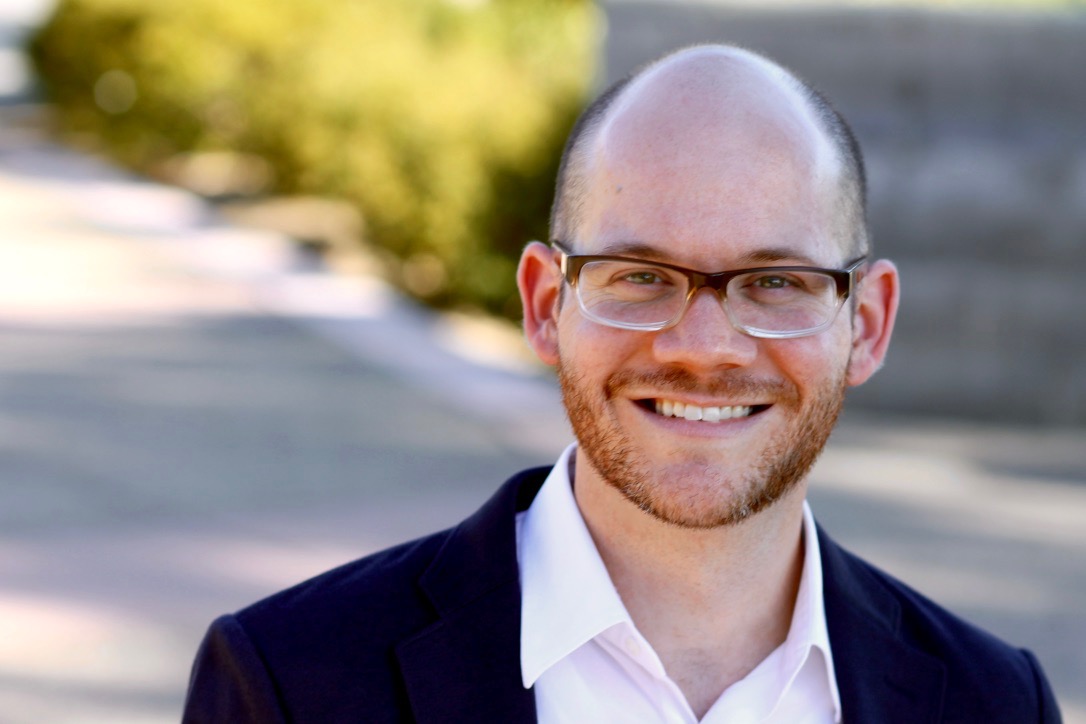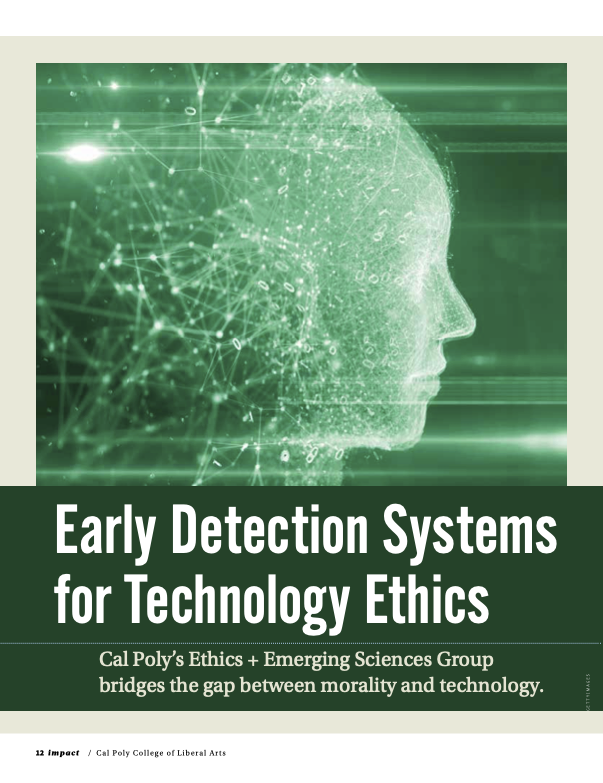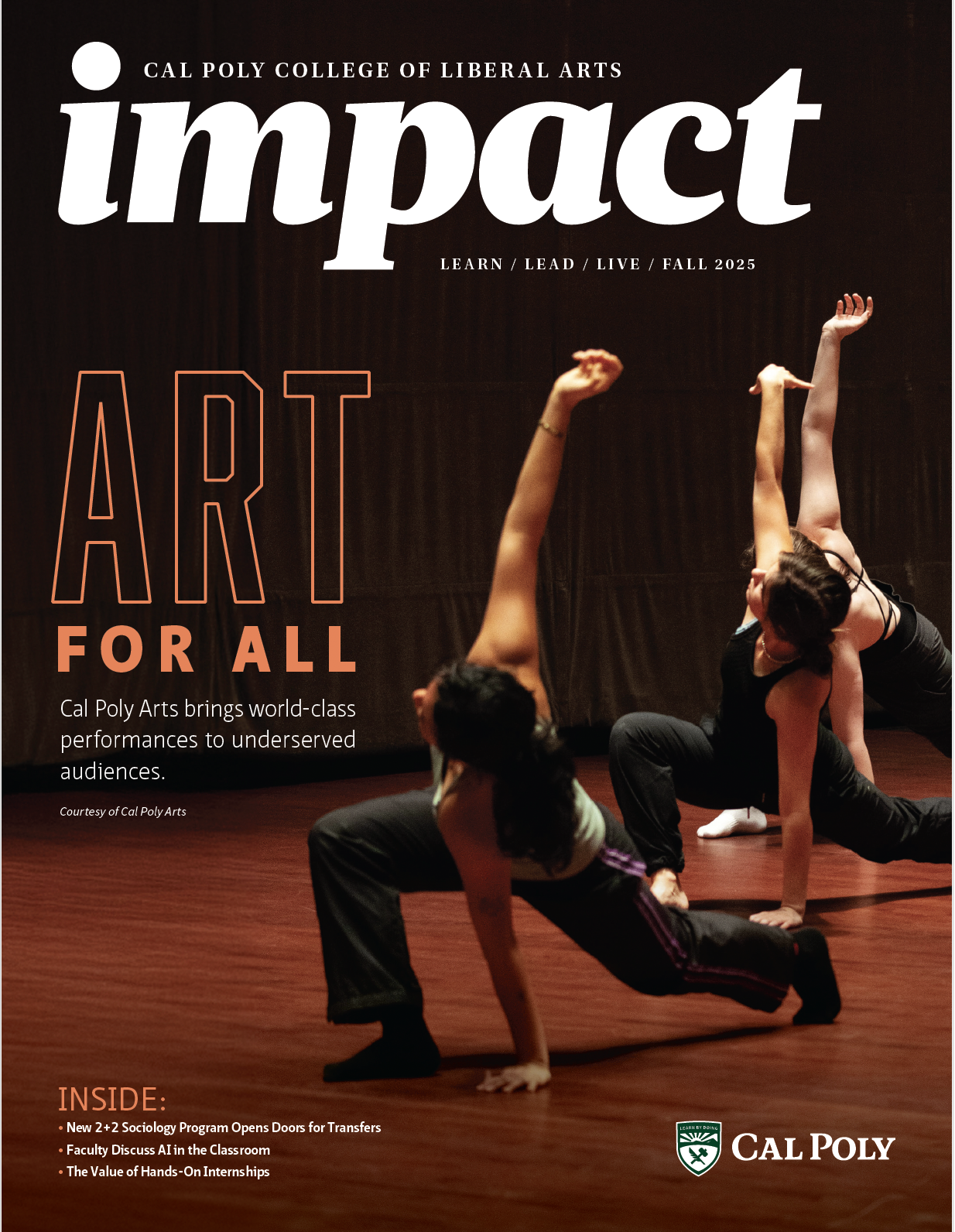Early Detection Systems for Technology Ethics
Cal Poly’s Ethics + Emerging Sciences Group bridges the gap between morality and technology.
For much of history, a divide between the humanities and the sciences has worried many great thinkers. As technology developed at dizzying speeds, law, philosophy and ethics have often lagged behind. Cal Poly’s Ethics + Emerging Sciences Group (EESG), however, applies ethics to new technologies and technological concepts before they have a significant impact on society. Situated within the Philosophy Department, the group asks “Should we?” in tandem with scientists asking, “Can we?” Its work tips the scale back in favor of humanity’s ability to develop moral frameworks more quickly than new technologies.

Philosophy Professor Patrick Lin explores the ethical questions and thinking around emerging technologies.
When EESG formed in 2007, very few U.S. researchers were studying technology ethics. Philosophy Professor Patrick Lin and Lecturer Keith Abney were poised to meet the substantial demand for technology policy and innovation expertise, and they found the perfect environment for their interdisciplinary exploration at Cal Poly. “Who can better understand the demand and the need for technology ethics than a polytechnic university?” Lin said. “Typical universities can be much more siloed: Philosophers do philosophy and engineers do engineering, and there’s not a lot of cross pollination there. But we’re grounded in theoretical ethics, and we connect the dots from theory to practice. That’s where philosophy can make a real impact on the world. It’s not just this ivory tower discipline. It’s up to ethics to provide the direction and moral compass to ensure that we’re aiming technology in a beneficial direction.”
The group has grown since then, adding Associate Professor Ryan Jenkins in 2015 and others more recently. With six to eight core researchers, it is now the largest cluster of technology ethicists in North America with expertise in both theoretical and applied ethics. The faculty have expanded their research to include “frontier ethics,” studying an impressive range of emerging technologies that can be used to develop the Arctic, outer space and other frontiers. Studying nanotechnology led to examining human enhancement technology, which segued into robot ethics, AI, military technologies, cyberwarfare and policing technology. Many of these topics require researchers to ask similar questions, and as a result, their moral framework can be applied to new technologies as they become relevant.
Despite increased interest in recent years, the group’s interdisciplinary approach is still uncommon. “Deep and prolonged collaborations between philosophers and technologists are exceedingly rare. We have seen an accelerating interest in having this kind of ethical deliberation be part of development and deployment, and not just an ad hoc checklist that you run through right before you market what you were going to market anyway,” Jenkins said. “What we do is very important in that respect. We are a voice in this ongoing conversation about how to create potentially harmful technologies, but instead harness their benefits and mitigate their negative consequences.”

Associate Professor Ryan Jenkins has worked with the Ethics + Emerging Sciences Group since 2015.
Being on the cutting edge of ethics and technology has allowed Lin and Jenkins to shape the field through research contributions and by training students to become future leaders. They have incorporated technology ethics into the curriculum, often assigning industry-applicable tasks like writing reflective memos for a tech company’s analysis of a new product. Students learn critical thinking skills and enter their careers with highly desirable ethics training that can be applied to virtually any industry.
There is great potential to expand engagement with students and the local community around these issues, and the faculty stand ready to grow as their reputation brings more funding partners to the table. Still, as a passion project, EESG has significantly impacted ethical discourse at Cal Poly, nationally and globally. “We’re often the first in these fields to pioneer this work,” Lin said. “We look for green fields where these questions are underexplored, and where we can make a difference. I think it’s not an exaggeration to say we’ve launched thousands of careers in technology ethics over the years. There are a lot of capable people building out details in AI and robot ethics, but we’re looking at the big picture. We’re looking at the future and what we might want to start thinking about right now.”
To learn more about the Ethics + Emerging Sciences Group, or to get involved, email cla@calpoly.edu.
 Download a pdf of this article or a pdf of the full IMPACT magazine.
Download a pdf of this article or a pdf of the full IMPACT magazine.

